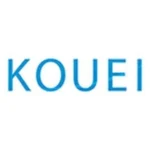Nippon Yakin Kogyo Co., Ltd
Nippon Yakin Kogyo NAS64 Corrosion Resistant Alloys

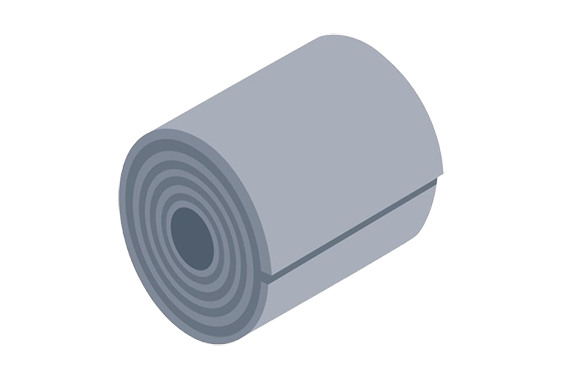
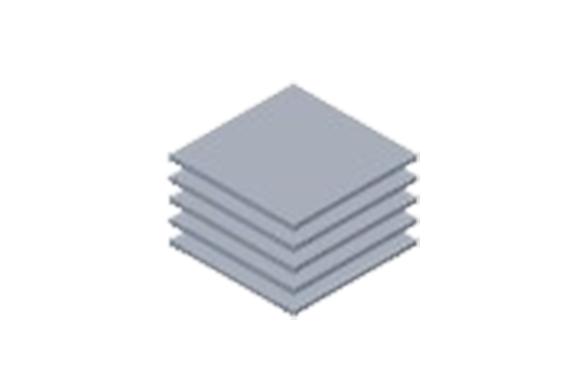
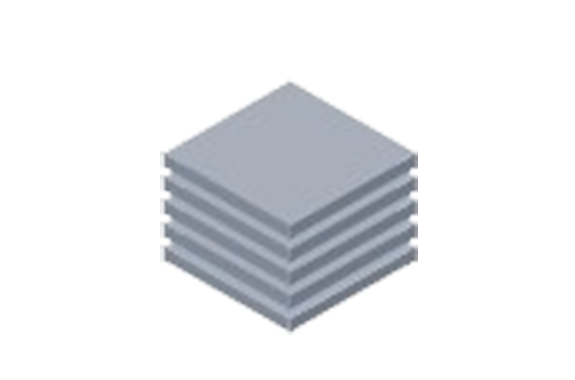
Manufacturer: Nippon Yakin Kogyo Co., Ltd
Model : NAS64
NAS64 (UNS S32506)
High Corrosion Resistant Duplex Stainless Steel
Nippon Yakin developed NAS64 (SUS329J4L, UNS S32506), an austenitic-ferritic stainless steel that provides excellent corrosion resistance against phosphoric acid, acetic acid, and various sulfur compounds. In particular, its high chromium and molybdenum composition significantly improves its localized corrosion resistance compared to Type 316L. Nippon Yakin supplies this product in plate, sheet, and strip form.
| Chemical Composition | 25Cr-6.5Ni-3.3Mo-0.17N | ||
| Product Shape | 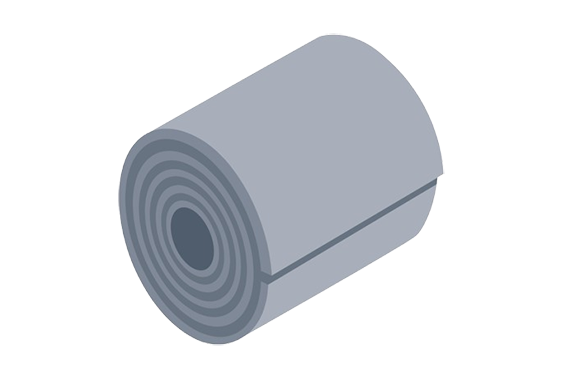 Coil Coil | 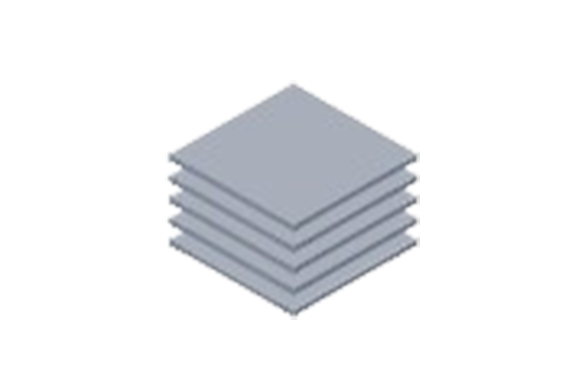 Sheet Sheet | 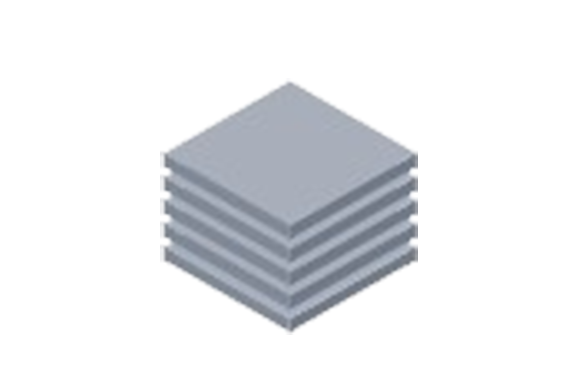 Plate Plate |
| Workability | High temperature strength is similar to Type 430 in the range of 950-1150°C. However, the steel shows a rapid increase in strength below 900ÂC. Exercise care when working with this material for cold workability, as it has high proof stress and low elongation compared to Type 304. | ||
| Weldability | You can apply various welding methods, such as shielded metal arc welding, TIG welding, and plasma welding, in the same way as with standard austenitic stainless steels. Use the same duplex grade type welding consumable. | ||
| Heat Treatment | NAS454 is not hardened by heat treatment. After heating to a solution treatment temperature of 1050-1080°C, quenching is necessary. Cool the material as rapidly as possible to minimize its exposure time to the embrittlement temperature range (475°C embrittlement, phase embrittlement). | ||
| Pickling | They use a mixture of nitric acid and hydrofluoric acid for pickling.However, descaling is somewhat difficult in comparison with Type 304. Performing alkaline immersion before acid pickling and, if possible, shot blasting, is extremely effective. | ||
| Applications | Water storage tank, Chemical plants, Environment-related equipment, Geothermal power generation, Papermaking plants, Seawater pump. | ||
Steel Grade/Standard
| Nippon Yakin Grade | JIS G 4304/4305 | ASTM A240 | EN |
|---|---|---|---|
| NAS 64 | SUS 329J4L | UNS S32506 | — |
Chemical Composition
| C | Si | Mn | P | S | Ni | Cr | Mo | N | |
|---|---|---|---|---|---|---|---|---|---|
| Specification (SUS 329J4L) | ≦0.030 | ≦1.50 | ≦2.00 | ≦0.040 | ≦0.030 | 7.50 ~ 8.00 | 25.00 ~ 26.00 | 3.00 ~ 3.50 | 0.05 ~ 0.20 |
| Specification (UNS S32506) | ≦0.030 | ≦1.00 | ≦2.00 | ≦0.030 | ≦0.015 | 6.90 ~ 7.20 | 26.00 ~ 27.00 | 2.00 ~ 3.00 | 0.05 ~ 0.20 |
Physical Properties
| Density [g/cm³] | 7.80 |
|---|---|
| Specific heat [J/kg·K] | 460 |
| Electrical resistivity [μΩ·cm] | 82.5 |
| Thermal conductivity [W/m·K] | 13.0 |
| Average coefficient of thermal expansion [10⁻⁶/°C] | 30 ~ 200°C: 12.0 30 ~ 300°C: 12.4 30 ~ 400°C: 12.8 |
| Young’s modulus [MPa] | 21.4 × 10⁴ |
| Magnetism | Y (magnetizable) |
| Melting range [°C] | 1420 ~ 1465 |
Mechanical Properties
Mechanical Properties at Room Temperature
| Specification | 0.2% proof stress [MPa] | Tensile strength [MPa] | Elongation [%] | Hardness [HB] |
|---|---|---|---|---|
| Specification (SUS 329J4L) | ≥450 | ≥620 | ≥18 | ≤302 |
| Specification (UNS S32506) | ≥450 | ≥620 | ≥18 | — |
| Example: Cold-rolled sheet 1.6mm | 657 | 800 | 26 | — |
| Example: Hot-rolled plate 16mm | — | 732 | 853 | — |
NAS64 exhibits excellent localized corrosion resistance, including resistance to pitting corrosion and stress corrosion cracking, allowing its use in environments where Type 316L cannot perform. In particular, its pitting and crevice corrosion resistance is far superior.
Pitting Corrosion Resistance
| Alloy | ASTM G48 Method A | ASTM G48 Method C | |
|---|---|---|---|
| 22°C | 50°C | Critical pitting corrosion temperature CPT (°C) | |
| SUS 316L | × | × | 15 |
| NAS 329J3L | ○ | × | 55 |
Test conditions: ASTM G48 Method A (○: No pitting corrosion, ×: Pitting corrosion)
Test solution: 6% FeCl₃
Test temperature: 22°C, 50°C (Recommended temperature in this test)
Test time: 72h
Crevice Corrosion Resistance
| Alloy | ASTM G48 Method D |
|---|---|
| Critical crevice corrosion temperature CCT (°C) | |
| SUS 316L | <10 |
| NAS 329J3L | 30 |
Test conditions: ASTM G48 Method D
Test solution: 6% FeCl₃ + 1% HCl
Test time: 72h
Stress Corrosion Cracking Resistance
| Alloy | 45% (155°C) | 42% (143°C) | 40% (138°C) | 38% (134°C) | 35% (126°C) | 30% (115°C) | 25% (110°C) | 20% (108°C) |
|---|---|---|---|---|---|---|---|---|
| SUS 316L | × | × | × | × | × | × | × | ○ |
| NAS 329J3L | × | × | × | × | × | × | ○ | ○ |
| NAS 64 | × | × | × | × | × | ○ | ○ | ○ |
Test conditions: Immersion in boiling MgCl₂ solution
Test time: 300h
They use a U-bend test specimen.
○: No stress corrosion cracking ×: Stress corrosion cracking
Corrosion rate in sulfuric acid at 80°C (mm/y)
| Alloy | 5% | 10% | 20% | 40% | 60% | 80% |
|---|---|---|---|---|---|---|
| SUS 316L | 1.67 | 4.69 | 71.91 | 746.9 | 704.5 | 337.4 |
| NAS 329J3L | 0.01 | 0.17 | 4.65 | 365.9 | 1456 | 106.4 |
| NAS 64 | <0.01 | 0.02 | 1.07 | 191.9 | 1054 | 60.72 |
Test time: 24h
Corrosion rate in hydrochloric acid at 80°C (mm/y)
| Alloy | 0.1% | 1% | 2% | 3% |
|---|---|---|---|---|
| SUS 316L | 0.01 | 2.73 | 7.65 | 14.68 |
| NAS 329J3L | 0.02 | 0.03 | 31.10 | 60.62 |
| NAS 64 | 0.01 | 0.02 | 1.41 | 7.21 |
Test time: 24h
| Alloy | JIS | UNS No. | Chemical composition |
|---|---|---|---|
| SUS 316L | S31603 | 17Cr-12Ni-2Mo | |
| NAS 329J3L | S32205 | 22Cr-5.3Ni-3.2Mo-0.16N | |
| NAS 64 | S32506 | 25Cr-6.5Ni-3.3Mo-0.17N |
Workability
High temperature strength is similar to Type 430 in the range of 950-1150°C. However, the steel shows a rapid increase in strength below 900°C. Regarding cold workability, care is required as proof stress is high and elongation is low in comparison with Type 304.
Weldability
Various welding methods are applicable in the same manner as with standard austenitic stainless steels, including shielded metal arc welding, TIG welding, and plasma welding. Use of welding electrodes for UNS S32506 is recommended. Preheating and post-heating are not necessary. In welding, the interpass temperature should be no more than 100°C to prevent formation of intermetallic compounds.
Heat Treatment
Solution annealing of NAS64 should be performed at the temperature range from 1020 to 1120°C followed by being quenched in water or rapidly cooled by other means. (Conditions provided in ASTM A480/A480M)
Pickling
A mixture of nitric acid and fluoridic acid is used in pickling. However, descaling is somewhat difficult in comparison with Type 304. Alkaline immersion before acid pickling, and if possible, shot blasting are extremely effective.
Applications
Water storage tank, chemical plants, environment-related equipment, geothermal power generation, papermaking plants, seawater pump
Related Products
-
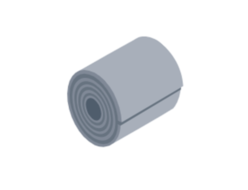
Nippon Yakin Kogyo NASNM15M Non-Magnetic Alloys
-
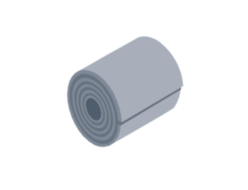
Nippon Yakin Kogyo NASPB SoftMagnetic Alloys
-
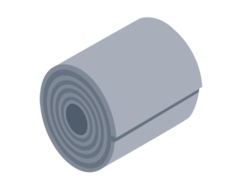
Nippon Yakin Kogyo NAS42 Controlled Expansion Alloys
-
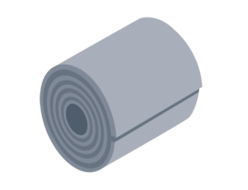
Nippon Yakin Kogyo NAS325N Corrosion Resistant Alloys
-
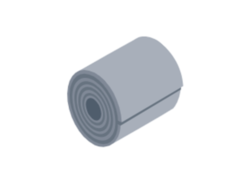
Nippon Yakin Kogyo NASNi201 Corrosion Resistant Pure Nickel
-
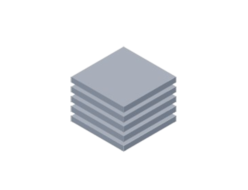
Nippon Yakin Kogyo NASH38X Heat Resistant Alloys





